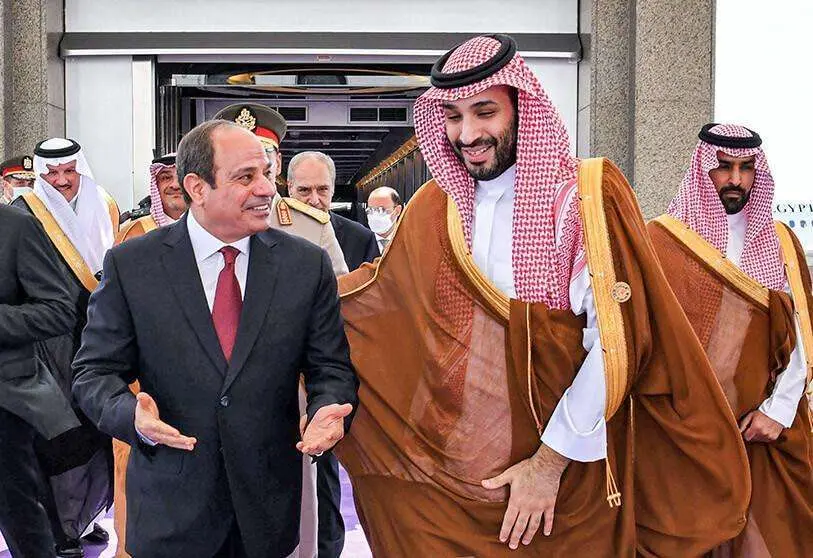Saudi Arabia at the forefront of the Middle East's green transition

COP27 is a new opportunity to put environmental conservation at the centre of public debate. The effects of climate change have intensified, according to data from the World Meteorological Organisation. In the last eight years, the planet has experienced the highest temperatures on record as a result, among other factors, of the recurrent use of fossil fuels, according to a report by the United Nations agency.
The climate crisis affects everyone without exception, but not in the same way. Some regions are more vulnerable than others to the consequences of this phenomenon. One of the most exposed is the Middle East, where the UN has warned of the risk to water supplies and food production systems. Water scarcity is a real problem. Of the 17 countries in the world suffering from "water stress", 12 are in this region, according to the World Resources Institute.
Egypt is hosting this year's 27th session of the United Nations Climate Change Conference. Egyptian President Abdel Fattah El Sisi welcomed dozens of heads of state and government, ministers, diplomatic delegations and climate activists to the Red Sea resort of Sharm el-Sheikh on Monday to discuss global climate change over the next two weeks.
A Green Future ??#MGISummit pic.twitter.com/Q3PCZCGPnk
— Foreign Ministry ?? (@KSAmofaEN) November 8, 2022
Saudi Arabia's Crown Prince Mohammed bin Salman used the occasion to summon the Middle Eastern leaders present on Monday to his own multilateral climate meeting, the second Middle East Green Initiative (MGI) Summit, which he co-chaired with El Sisi. The 'desert kingdom' plans to unify efforts at the regional level to jointly combat a crisis that affects them directly with the desertification of the area comprising Iraq, Syria, Jordan and Iran and the spreading drought in the Gulf.
"Prosperous Gulf states face a depletion of freshwater resources over the next 50 years, while in conflict-torn Iraq, average temperatures are soaring at two to seven times the global average," wrote Brookings scholar Ranj Alaaldin, who saw these changes as a catalyst for future conflicts.
Saudi Arabia's newly appointed Prime Minister, known by his initials MBS, led a meeting at which he announced that Riyadh would contribute $2.5 billion to the Middle East Green Initiative, an ambitious project launched just over a year ago by the crown prince with the aim of reducing carbon emissions in regional hydrocarbon production by more than 60 per cent. "This will be achieved by funding projects that support the green transition and encourage greater innovation," he stressed.

Financing would be provided over the next decade through the Public Investment Fund, the sovereign wealth fund controlled by MBS. The Saudi government's 10-year plans include reducing its energy dependence on oil and generating at least half of its electricity from renewable energy, which is at odds with recent moves by Saudi Aramco, the state-owned oil giant, which has been investing billions of dollars in expanding its oil production capacity.
For his part, the Emirati president reaffirmed his country's role as a "responsible" energy producer. "We will continue to play this role as long as the world needs oil and gas," said Mohammed bin Zayed in a speech intended to appease his Western partners. In this sense, the Emirati authorities have begun preparations to organise the next climate summit, COP28 in Dubai. They are therefore the first to be interested in seeing some progress materialise.
"Out of the fragile countries in the region, the UAE has the highest per capita water consumption in the world, but risks depleting its freshwater resources in the next 50 years due to population growth and increased domestic water use," Alaaldin warned in the Brookings report. Everyone will need to look for solutions.








